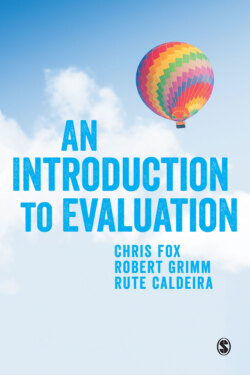Читать книгу An Introduction to Evaluation - Chris Fox - Страница 52
На сайте Литреса книга снята с продажи.
Cultural competency
ОглавлениеMore generally, cultural competence in evaluation tends to be defined as:
a systematic, responsive inquiry that is actively cognizant, understanding, and appreciative of the cultural context in which the evaluation takes place; that frames and articulates the epistemology of the evaluative endeavor; that employs culturally and contextually appropriate methodology; and that uses stakeholder-generated, interpretive means to arrive at the results and further use of the findings. (SenGupta et al. 2004: 13, bold added)
The above definition, however, does not sufficiently highlight the most vital aspect of a culturally competent evaluator, namely their ability to examine the culture-based assumptions – their own and of those being evaluated (Nelson-Barber et al. 2005: 62), understand the impact that these may have on the evaluation (namely in terms of the salient cultural issue of power asymmetries), and pro-actively address these through, for example, avoiding certain methods and approaches (Chouinard and Cousins 2007: 46).
